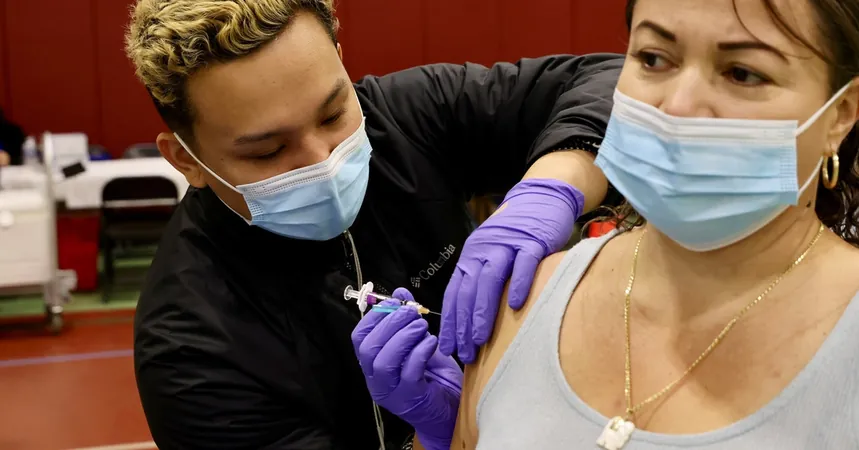
Revolutionizing Vision Care: The Promise of Gene Therapy for Inherited Retinal Diseases
2024-10-07
Author: Yu
Inherited Retinal Diseases: A Growing Concern
Inherited retinal diseases (IRDs) pose a significant challenge, as current treatment options remain scarce and cater to only a small fraction of affected patients. Among these diseases, retinitis pigmentosa (RP), a genetic condition that leads to progressive vision loss, affects approximately 1 in every 4,000 people worldwide. In the United States alone, over 100,000 individuals grapple with the debilitating effects of this disorder, which often results in night blindness and gradual loss of peripheral vision, ultimately leading to blindness.
The Limitations of Current Gene Therapies
While traditional gene therapies focus on correcting specific genetic mutations—an approach hampered by the genetic diversity associated with IRDs—Ocugen is pioneering a groundbreaking gene-agnostic therapy, OCU400. This innovative treatment aims to modify the underlying pathways affected by various genetic mutations rather than simply targeting one specific mutation. Arun Upadhyay, PhD, the chief scientific officer at Ocugen, recently shed light on this transformative approach during an interview. "Current treatment options are dishearteningly limited," Upadhyay explained. "Only one product has received approval for treating patients with mutations in the RP65 gene, which is a mere 1% to 2% of the total RP patient population. The reality is that we are facing a substantial unmet medical need."
A New Approach to Therapy
With over 100 genes linked to RP, developing targeted therapies has proven to be a monumental task. Ocugen’s Modifier Gene Therapy offers a solution: it focuses on enhancing the function of photoreceptors and preserving retinal cells through cellular and molecular homeostasis. This approach is designed to provide therapeutic benefits to a broader population of RP patients, regardless of their specific genetic mutation.
Clinical Trials of OCU400
Currently, OCU400 is undergoing its Phase 3 clinical trial, named liMeliGhT, intending to assess both safety and efficacy. This study comprises two arms: one targeting rhodopsin mutations and the other taking a gene-agnostic approach. A total of 150 patients will be enrolled across both arms, including participants from both adult and pediatric populations at various disease stages. Patients will be randomized to either receive the OCU400 treatment or remain as untreated controls.
Measuring Success
The trial's primary endpoint is to measure patient mobility using the Luminance Dependent Navigation Assessment (LDNA), a maze test performed under varying light conditions. The success criterion for the therapy is a reported improvement of 2 lux levels or more after 12 months, a threshold established from encouraging results in earlier Phase 1/2 studies where over 60% of patients showed notable improvement.
A Promising Future
As Ocugen continues to push the boundaries of what's possible in gene therapy, the anticipation surrounding OCU400 grows. The potential for this innovative treatment to offer hope to countless individuals living with inherited retinal diseases is a promising testament to the future of medical science and the boundless possibilities of gene therapy. The fight against vision loss may one day see an end, transforming not only the lives of those affected but also setting a new standard in the healthcare landscape for genetic disorders. Stay tuned as we bring you more updates on Ocugen's groundbreaking advancements in retinal therapy!




 Brasil (PT)
Brasil (PT)
 Canada (EN)
Canada (EN)
 Chile (ES)
Chile (ES)
 España (ES)
España (ES)
 France (FR)
France (FR)
 Hong Kong (EN)
Hong Kong (EN)
 Italia (IT)
Italia (IT)
 日本 (JA)
日本 (JA)
 Magyarország (HU)
Magyarország (HU)
 Norge (NO)
Norge (NO)
 Polska (PL)
Polska (PL)
 Schweiz (DE)
Schweiz (DE)
 Singapore (EN)
Singapore (EN)
 Sverige (SV)
Sverige (SV)
 Suomi (FI)
Suomi (FI)
 Türkiye (TR)
Türkiye (TR)